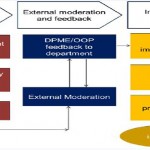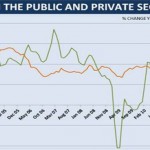Measuring societal well-being, via the Social Progress Index
Shifting focus from the classic Gross Domestic Product as a means for measuring a country’s success, Michael Green, renowned social progress expert and CEO of the Social Progress Imperative, suggests a tool that is more apt in measuring societal and national success, tailor-made for the 21st century.
He points out that today’s world revolves around the GDP, deeming it a benchmark for success, although acknowledging it as an incomplete measure for the purpose of determining societal and national progress. Given that it cannot reflect important indicators for a society’s wellbeing, some that herald issues of great importance, such as: safety, freedom, education, protection, satisfaction and so forth, it becomes an incomplete measure. All the aforementioned, he cautions, cannot be reflected by the purely economic statistic which is the over, and misused GDP.
Thus, he introduces the Social Progress Index, a tool of his own creation, which is entirely different from the traditional GDP, mainly in the fact that it brings an innovative way of looking at today’s world, having societal well-being defined in a 3-dimensional manner:
- Basic human needs: essentially, when pinning down a nation’s power to provide for its people, it is essential that it firstly ensures basic resources pertaining to food, water and safety;
- Foundations of wellbeing: somewhat different than the first, in terms of more elaborate needs, there is the second dimension, by which a society is more evolved if it can provide its people with easy access to organized means of development, such as: education, free information, health services and an appropriate and sustainable environment.
- Opportunity: in providing the freedom and options for personal and individual development. Going from a macroscopic view to the people that make a country, in this model, a society needs to provide its citizens with untampered access to resources and developmental oportunities in an indiscriminative, unrestrictive manner, supporting each individual’s personal growth.
These 3 dimensions are further refined and elaborated into a Social Progress Framework, which contains 12 components.
Bringing solid arguments to this end, Green demonstrates his theory by highlighting the relationship between the GDP and real social progress, pointing out, empirically, that it is less and less of a measure for development.
Taking Brazil as an example, he points out how the GDP per capita propels the country above the line, into a highly progressive segment, but only partially reflects the country’s growth potential and current reality. Taking only economy into plan, Green posits, will only get the country as far as strengthening its financial dimension, without accounting for social progress per whole. With the risk of social development becoming stagnant, or even worse, decreasing, there is a need for countries to understand how to convert the GDP into societal development potential, how to back it up with endeavors for social progress. This is the niche in which the Social Progress Index fits in, as the missing link between the GDP and a nation’s reality, with the hope of driving sustainable growth and actual improvement, at both governmental and individual levels.
Video source:

Tags: Government - Local performance, Performance Management, Sustainability performance





